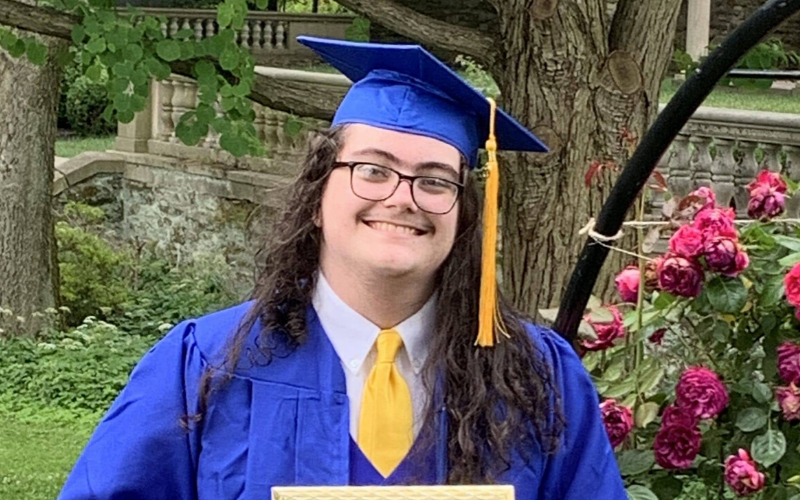
By: Trish Adkins
Travis Cook is living with an inoperable but stable brain tumor. Now a high school graduate, cancer has left some late effects. He suffers from chronic daily headaches and nausea, struggles with fatigue and PTSD symptoms. Yet, through diagnosis, treatment and now survivorship, Travis has set big goals to someday work as a doctor or researcher and helps kids just like himself.
Transitioning from the routine of treatment back into the routine of life outside of cancer can bring a myriad of challenges for survivors. The transitions between grades and schools and into the workforce can be complicated.
Knowledge, networking, and advocacy are necessary to overcome barriers to obtaining an appropriate education. Here are some practical tips for navigating school and education, from the Childhood Cancer Survivors Guide.
1. Start with Your Medical Team
Childhood cancer and its treatment can leave survivors with unique educational needs. Comprehensive follow-up clinics have skilled personnel who help families work with school systems to get the best possible education for their children. In addition to the side effects of treatment, learning potential can be impacted by numerous or lengthy hospitalizations, persistent fatigue, hearing or vision loss, fine or gross motor impairments, and social difficulties.
Start your discussions with your medical team and look for their guidance and support on educaitonal issues.
2. Understand Your Rights When it Comes to Education.
Parents have many legal rights, and knowing what those are can help you advocate for yourself and your child. Schools are required to offer students with a customized education, if their diagnosis and treatment impacts their learning. Read more about educational legal rights here.
3. Customize Your College Search And Training For Survivorship
Survivors with cognitive late effects may need some help applying for and attending college. When visiting colleges, consider any special needs you have and talk to admissions personnel or staff members in the disabled student services office (every college and university has such an office) about any additional help you may require. Survivors with disabilities that affect mobility may need to pre-plan class times to allow for crossing campus to get to classes. Some colleges offer learning-disabled students special studies majors (designed around the student’s strengths), special help (e.g., untimed tests, tutoring, notetakers), a lighter class load, or waivers from course requirements.
4. Investigate College Scholarships
Many scholarships are given for unique endeavors or obstacles overcome. You may wish to take advantage of these opportunities to share with the college of your choice the values and perspectives you gained from facing and overcoming cancer.
The Childhood Cancer Survivors Guide book charts the territory for survivors by providing helpful information about medical late effects, emotions, follow-up care, staying healthy, jobs and insurance. The guide is available on the ALSF website. Through June 30th, you can purchase it for 20% off by using the code CCGS20 in Alex's Shop.

